29
Waterpolo Trainer
Waterpolo Trainer
Content
Your club and all the people who can't swim really need you. Many activities of clubs depend on volunteers. If you love swimming and have the ABC diploma yourself, you can become a coach. You provide training in one of the aquatic sports: competitive swimming, water polo, lifesaving, or fin swimming. You teach children, youth, and adults to swim technically well and to take their sport seriously. You ensure that the participants enjoy it so much that they keep swimming. "Staying swimming" is a big problem. Aquatic clubs lose many members, including children, youth, and young adults:
- When they go to secondary education,
- Transition to higher education,
- Start working,
- When friends drop out,
- Have children,
- Realize they're not getting any better,
- Are surpassed by others.
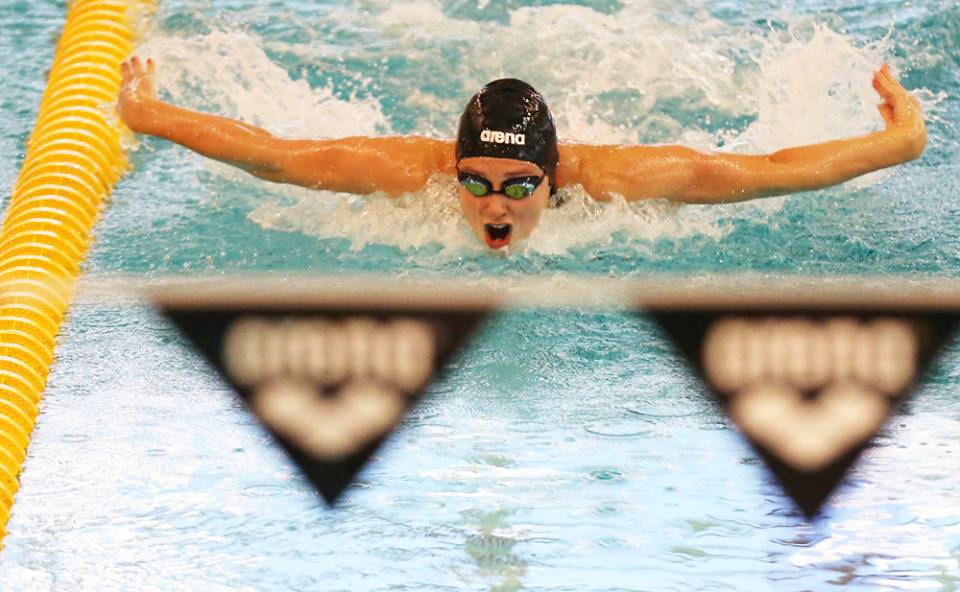
Not all members of a club are primarily focused on performance. For example, they come for the camaraderie, the social contacts with like-minded people, and the outings to competitions. To make both the more sports-oriented individuals and others enjoy themselves, many staff members are needed. Especially young people who are willing to give training or be officials. As an MDT participant, you can be trained for this and work at your club at the same time. You must be over 16 years old. ExpeditieRED will train you to become a level 2 coach. If you are a member of the KNZB, you can do this through the KNZB. If you are not yet a member, we will make you a member of the KNZB. You will receive an official KNZB coach diploma recognized by NOC*NSF at level MBO 2.
You will learn primarily:
- How to deal with groups and individuals in groups.
- How to create a safe environment.
- How to give training with pleasure.
- How to teach techniques from your sport to children and young people.
- How to implement training programs.
- How to ensure that participants have fun and satisfaction in what they do.
We do this in various ways with games, instruction, and other challenges to make it more enjoyable for children
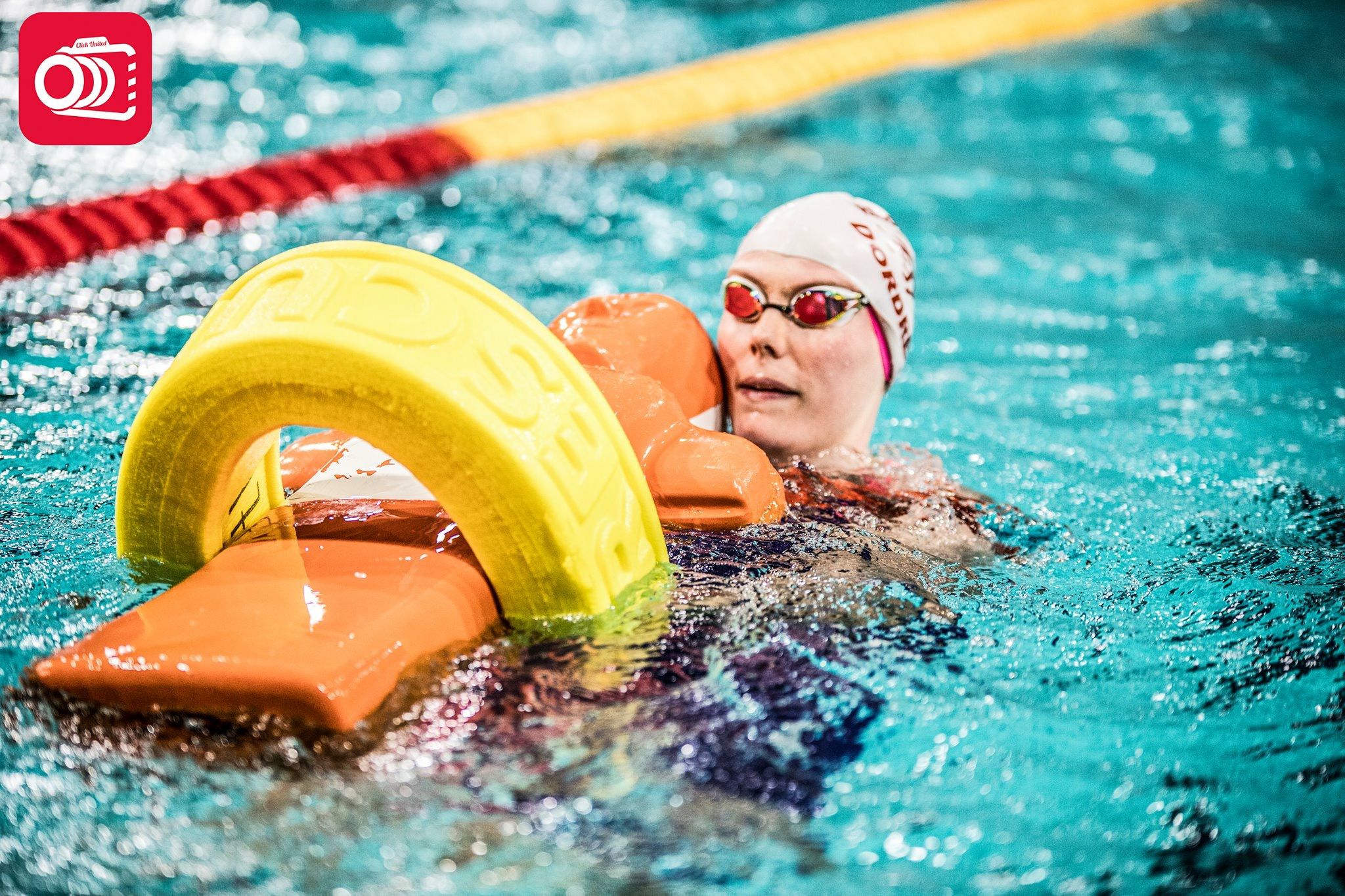
A social service time trajectory lasts a maximum of 6 months. During that period, you will provide approximately 45 hours of training in the pool. Additionally, you will receive 35 hours of training. In total, you will be actively involved for 80 hours during those 6 months.
The group to which you provide training depends on your choice. You can provide training to:
- Children in primary school age,
- Juniors,
- Seniors.
You will be guided in your choices, and this also applies throughout the entire trajectory. You will discuss what you will be doing with your coordinator from ExpeditieRED.
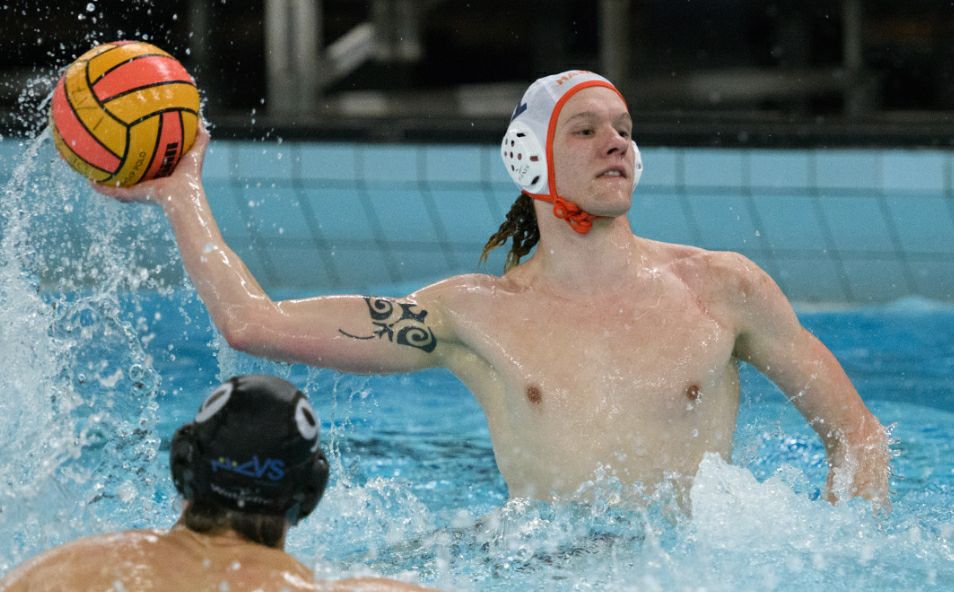
Of course, we collaborate closely with your club because it must align with their goals as well. With each club, we assess together what the club needs and wants. We also agree on who can guide you and ensure that you feel comfortable in your role.
To work effectively with clubs, ExpeditieRED is limited to Southwest Netherlands. If you are not a member of a club and have little swimming experience, you may be better suited to become an assistent (see the "assistent" playlist).
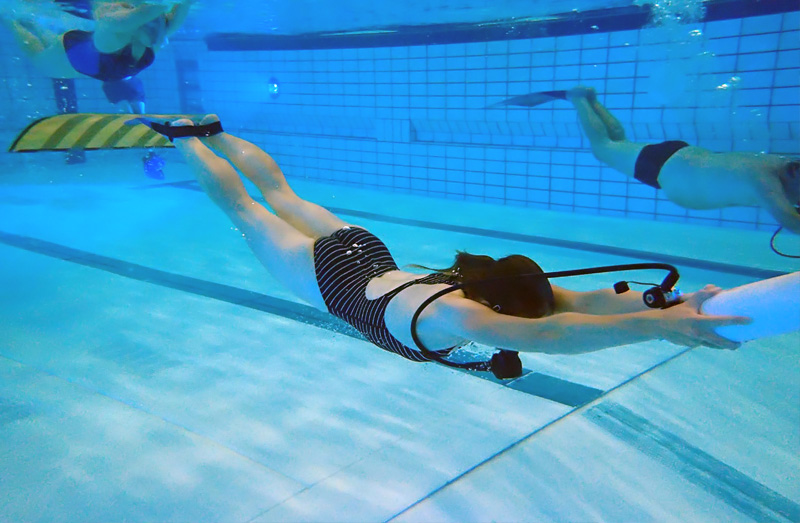
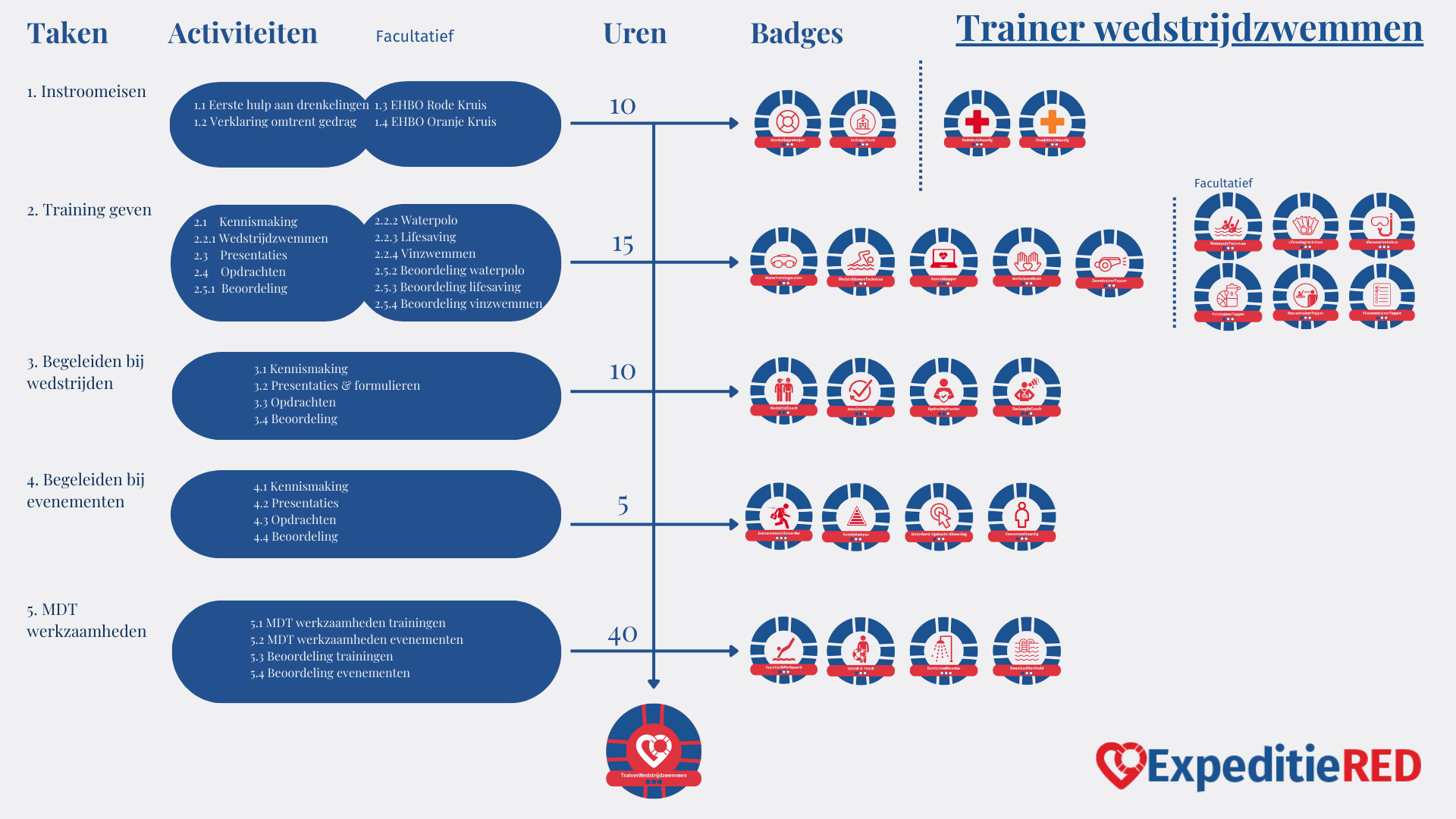
Activities to complete
Complete the following activities, earn badges and you will see your playlist progress updated
Content
Het is voor de sporters van groot belang dat de wedstrijd ordelijk en goed verloopt en dat alles klaarligt en sporters op tijd zijn voor de start. Jij vervult daar een belangrijke rol in door ervoor te zorgen dat sporters hun races zo goed mogelijk doen. Daarom maak je met hen afspraken over wat je van hen verwacht en wat zij mogen verwachten van jou. Je volgt de races, zodat je gerichte feedback kan geven. Ook zorg je dat de deelnemers niet zenuwachtiger zijn dan nodig. Je stelt ze gerust en zegt dat ze het kunnen.
Get activity badge
SuccessfulCoach Get this badge
You create a report of a competition where you address all points from the protocol.
Tasks
Task no.1
Issued by organiser or scanning QR code
Completing the task of assisting in competitions entails achieving the specified subtasks with the indicated results outlined in the protocol.
Within this task, you perform the following subtasks. Each subtask begins with the stated result:
1. Assisting athletes during competitions
The results of this subtask are:
- The assistance aligns with the athletes' needs.
- Hygiene rules are adhered to.
- Interactions are sportsmanlike and respectful.
- Athletes are prepared for the competition.
- Equipment is ready for the competition.
Key points include:
- Listening to athletes.
- Addressing athletes regarding (sports) behavior.
- Maintaining hygiene and care (in accordance with applicable norms and guidelines).
- Ensuring all athletes follow the rules.
- Demonstrating sportsmanlike and respectful behavior on and around the sports location.
2. Preparing for competitions.
The results of this subtask are:
- Athletes are prepared for the competition.
- Equipment is ready for the competition.
Key points include:
- Ensuring athletes are present at the desired location on time.
- Following through on agreements.
- Organizing athletes before the competition.
- Ensuring the equipment is in order.
- Handling regulatory matters.
3. Providing instructions.
The results of this subtask are:
- The instructions align with the nature and rules of the competition.
- The instructions are tailored to the level and experience of the athletes.
- The instructions contribute to the development of the athletes and the positive progress of the competition.
Key points include:
- Providing athletes with instructions regarding the competition.
- Coaching positively.
- Explaining and applying relevant rules.
- Ensuring athletes adhere to the rules.
- Assisting athletes after the skills test.
4. Evaluating competitions and reflecting on one's actions.
The results of this subtask are:
- The evaluation focuses on what went well and what could be improved.
- Self-reflection leads to insights into one's capabilities and areas for improvement in guiding skills tests.
Key points include:
- Evaluating the competition together with the athletes.
- Reflecting on one's actions.
Activities: 22
Started: 2
Completed playlist: 0
Time to complete: 6 days 13 hours 30 minutes
Share:
Organisers
ExpeditieRED
Badge issuer recognized with
Awero not-for-profit organisation manages this platform and develops it together with leading educational organisations. The European Union's programme Erasmus+ granted co-funding for building the first version of this platform. Contact support@awero.org.
Platform
Change to another language:
